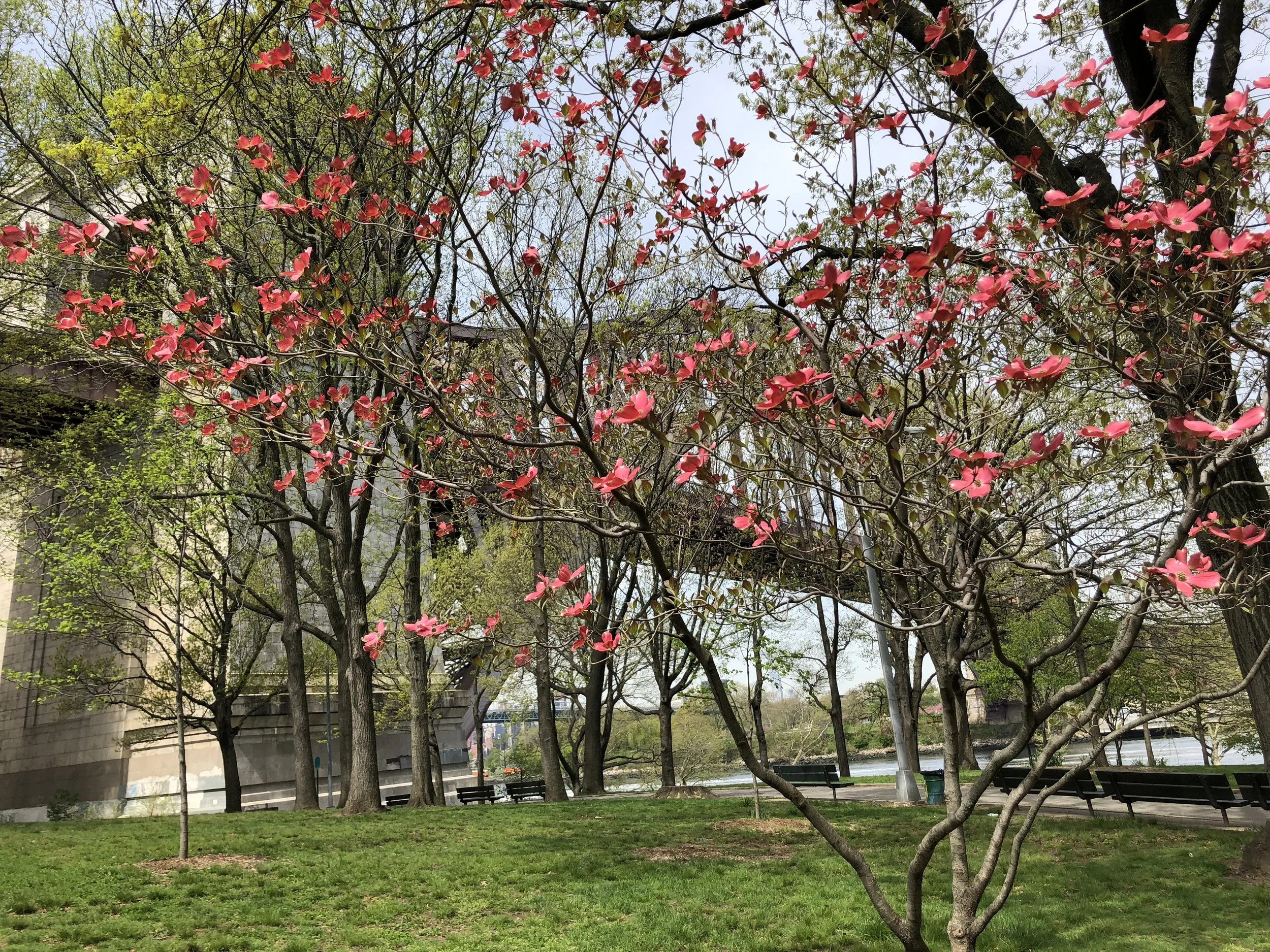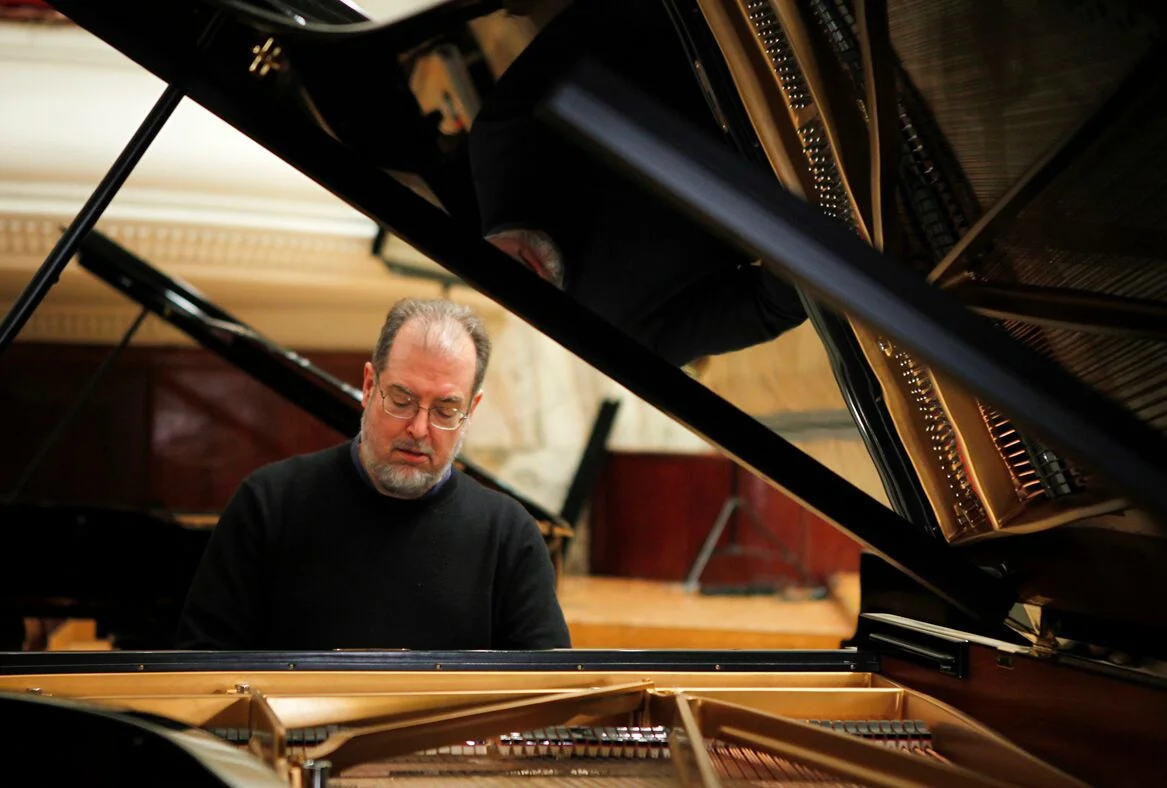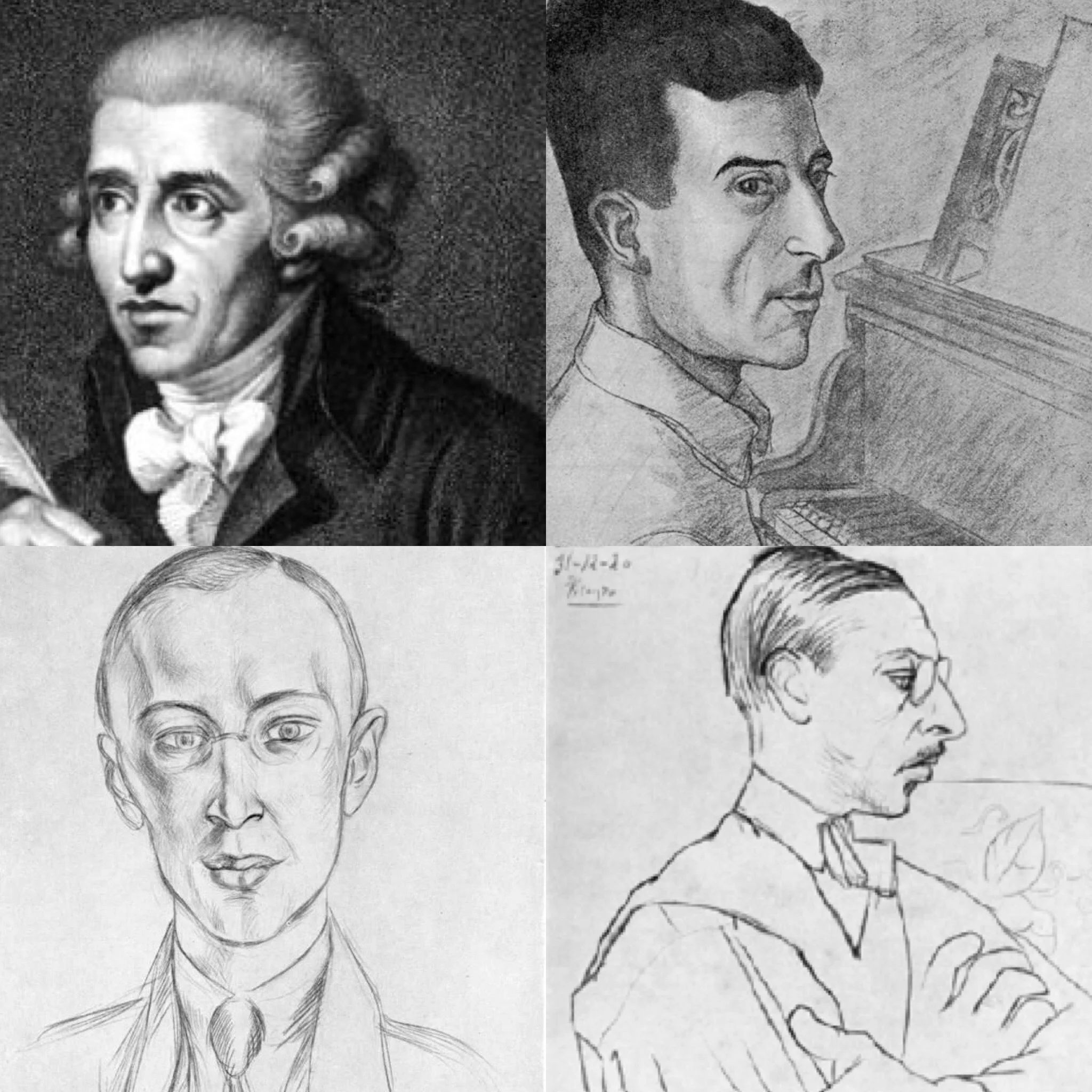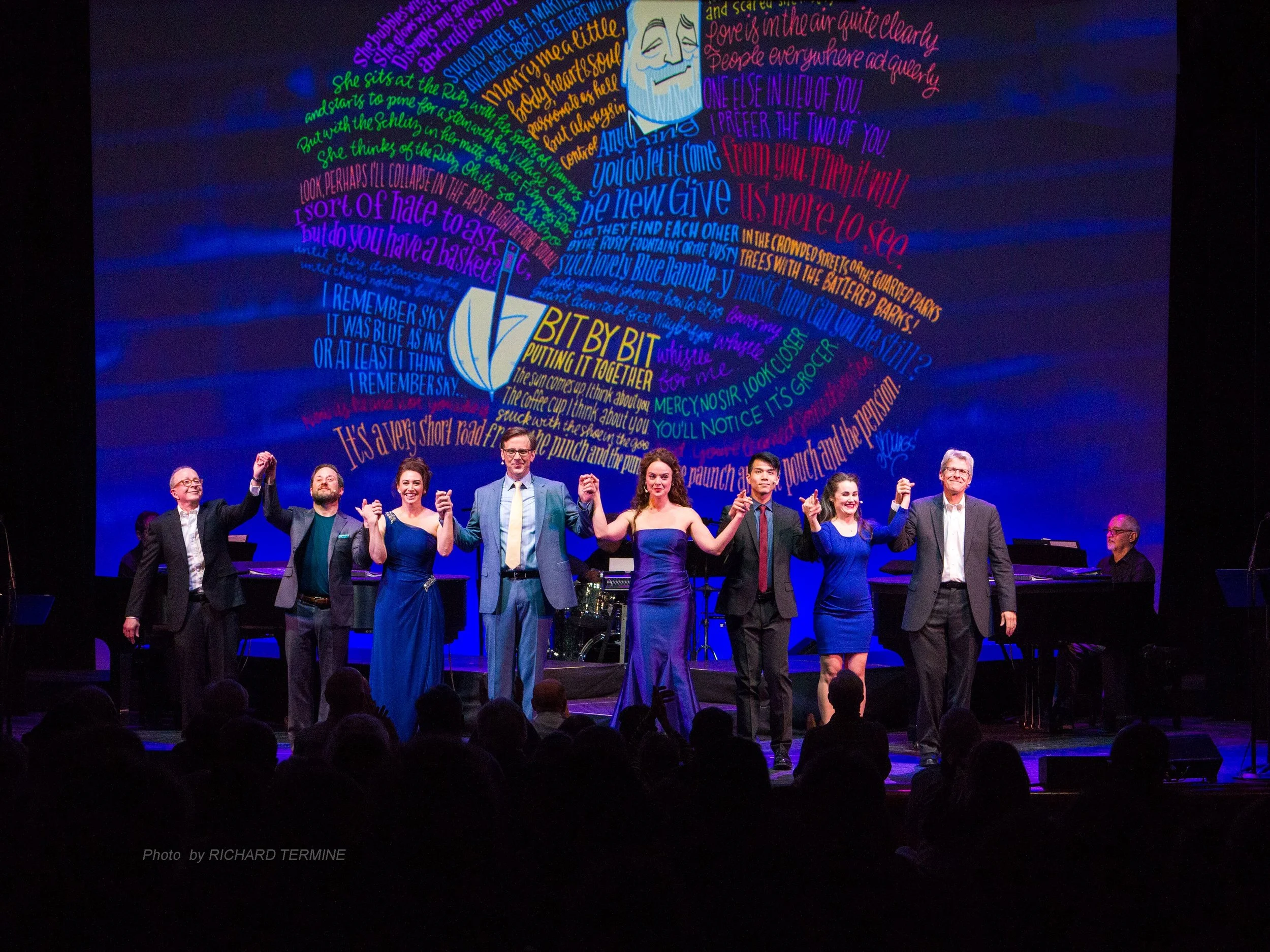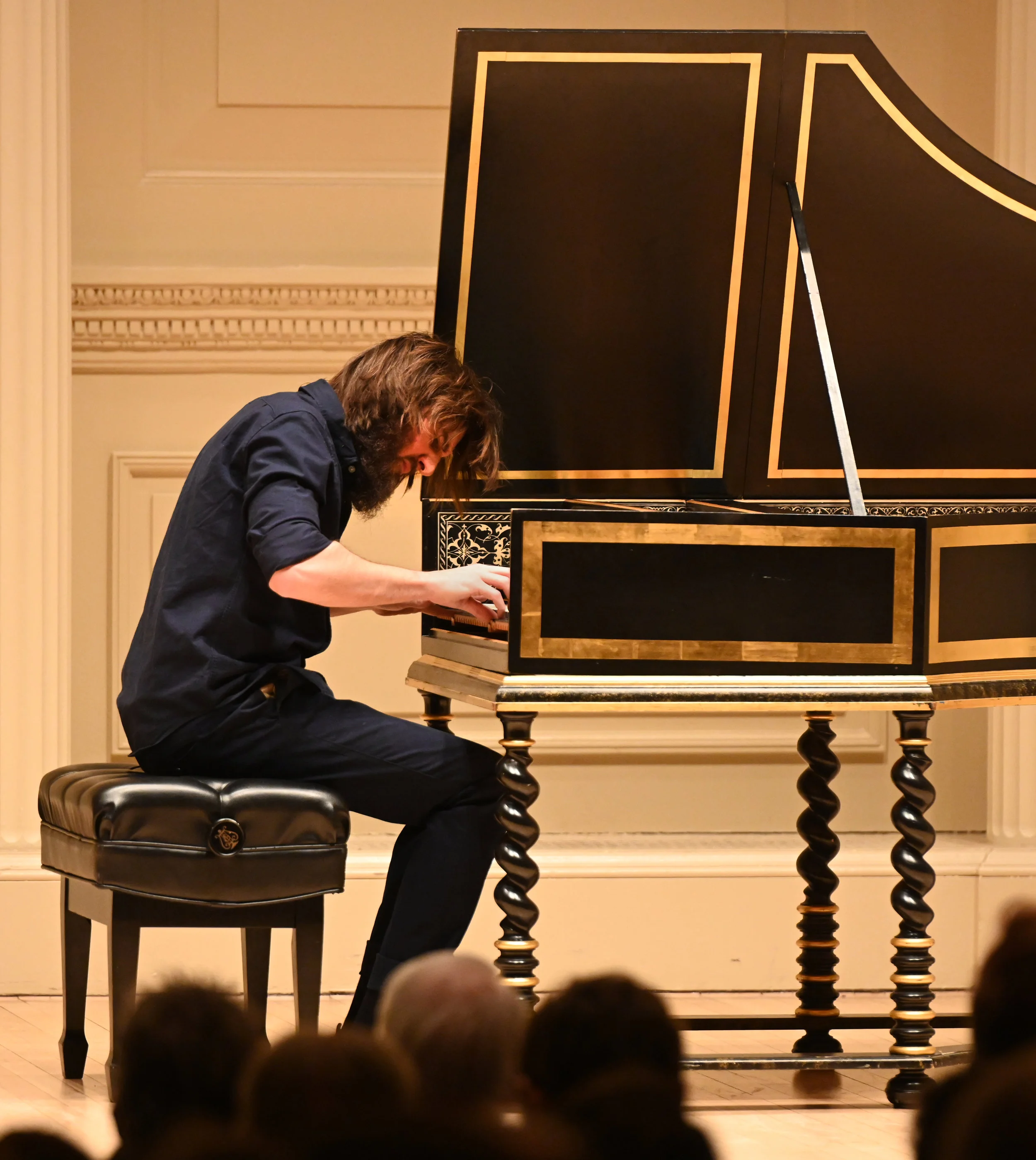REVIEW: Garrick Ohlsson Explores and Conquers Brahms
Garrick Ohlsson, one of today's masters of concert pianism, played his second installment (of four) in a complete traversal through the piano music of Johannes Brahms at the 92nd St. Y on Sunday. Ohlsson is the very embodiment of the modern virtuoso, a pianist of immense physical power (his large stature towers over the instrument) and poetic insight.
REVIEW: Perlman and Kissen Sell Out Carnegie Hall
Itzhak Perlman debuted at Carnegie Hall in 1963. He has been winning Grammys since 1977, and was awarded the Presidential Medal of Freedom by President Obama in 2015. Evgeny Kissen, 26 years Perlman's junior, rose to fame as a child prodigy in Russia and made his Carnegie debut in 1990,. His star has not faded. The two joined up on this storied stage for a hefty program of hearty meat-and-potatoes repertoire, and it was enlightening.
REVIEW: Orchestra of St. Luke's Looks at Classical Style
Orchestra of St. Luke’s, Grammy-winning chamber orchestra based in New York City since 1974, gave a brilliant essay on Classical tradition, through the looking glass of the Neo-Classical. A delightful celebration of the symphony, and its offspring, it was the perfect program.
REVIEW: CMS Celebrates Crumb, American Maverick, at 90
It’s a cliché to describe George Crumb, the Pulitzer Prize-winning composer turning 90 this year, as a maverick. But, the word perfectly describes this composer who forged his own path, bucking established pretenses and becoming an original, vital voice in American music. Chamber Music Society of Lincoln Center celebrated Crumb’s career in two rewarding concerts amounting to one of this year’s most significant artistic events. Two expansive evenings, exceptionally produced and performed, exhibited the humanity, and curiosity about the universe, in Crumb’s musical output.
REVIEW: Simone Young Returns to New York Philharmonic with a Bang
Simone Young knows every note of Mahler's gargantuan score, and thanks to her complete mastery of the conductor's tools, she commanded the Philharmonic like a virtuoso. As soon as she appeared on the podium, her focused, clearheaded energy galvanized the orchestra. The "Tragic" calls for impressive forces, all hands on deck, and New York's musicians filled the stage at David Geffen Hall, and under the vibrant leadership of Ms. Young, they played as brilliantly as ever.
REVIEW: Budapest Festival Orchestra Shows How Bartók is Done
Béla Bartók spent his final years living in a building at the northwest corner of 57th Street and 7th Avenue. Carnegie Hall, on the diagonally opposite corner, hosted his native Hungary's present-day preeminent orchestra, the Budapest Festival Orchestra, in two evenings devoted to his music. Under the baton of the affable Iván Fischer, the second of these concerts was a triumph.
REVIEW: Ivo van Hove Pries into Janacek's Diaries
Ivo van Hove is one of the "it" directors in theater and opera around the world, where his avant garde interpretations leave audiences alternately stirred and confounded. His staging of Czech composer Leoš Janáček's Diary of One Who Disappeared, a collaboration with Flemish production company Musiektheater Transparent, is both.
REVIEW: The Sterling Voices of King's College Choir
The Choir of King's College, Cambridge's recent concert at Saint Thomas Church felt like a celebration -- a grateful, momentous turning of the road. It felt like Spring. This was the last occasion on which they would appear under the direction of Stephen Cleobury in the U.S. before he retires. Fittingly, Daniel Hyde, current music director of St. Thomas's own esteemed music program will return to his alma mater to take over Mr. Cleobury's duties as Director of Music.
REVIEW: 92Y Lyrics & Lyricists Solves Sondheim's Wordplay
The 92nd St. Y’s esteemed series celebrating the great American songbook, “Lyrics & Lyricists,” is in its 49th season, and now under the aegis of the head of the Rodgers and Hammerstein Organization, Ted Chapin. Stephen Sondheim, indisputably the finest lyricist alive today, and arguably the greatest lyricist in the history of the American musical theater, has naturally been a writer the series has performed on more than one occasion. This music theatre nerd yearned to go further “into the words.” But, given how quickly a production like this must be assembled, Sondheim: Wordplay was a winning, entertaining evening celebrating one of our greatest artists.
PREVIEW: April in New York
Cadenza NYC’s monthly preview of New York’s classical music events. A curated list of the most interesting and promising classical music happenings in New York City for the month of April 2019. 92Y, Bargemusic, BAM, Carnegie Hall, New York Philharmonic, Chamber Music Society of Lincoln Center, and new this month…The Shed at Hudson Yards!
REVIEW: Anne-Sophie Mutter and Friends at Carnegie Hall
Anne-Sophie Mutter renewed her claim as one of the world’s finest violinists in her recent concert with longtime pianist Lambert Orkis. In an arresting program, the pair explored contrasting and deeply expressed emotions through music, balancing two sonatas by Mozart with two compelling, yet very different twentieth century French sonatas. Blessedly, Mutter remains a champion of new music, and a world premiere was among the highlights of the evening.
REVIEW: Jean Rondeau's "Italian Recycling"
French superstar of the harpsichord world, hipster wunderkind Jean Rondeau, recently written about by Alex Ross in The New Yorker, appeared on Thursday in the intimate Weill Recital Hall in Carnegie Hall, with a program of J. S. Bach and Domenico Scarlatti called Italian Recycling, giving local audiences a chance to hear his spellbinding playing in person. His program contrasted the motoric, formalistic music of Bach — which he plays with high stakes and riveting drama — with an assortment of the relatively sensual and exotic single-movement sonatas of Scarlatti. In this wide ranging, yet cohesive, concert, Rondeau proved his mettle as one of the great interpreters of Baroque music on the stage today.
REVIEW: Michael Tilson Thomas and Vienna Philharmonic Stop Time With Mahler’s Ninth
Today’s New Yorkers clamored to hear the Vienna Philharmonic play the Ninth Symphony, often referred to as Mahler's "Farewell" Symphony, on that very stage. The audience was rapt, collectively holding its breath in anticipation of the first upbeat. Audiences these days are rarely so focused -- a congregation of the devout, readying to participate in a ritual, an exorcism of sorts. MTT knows how to pace things for maximum payoff. The final, patiently drawn out minutes, were like layers of atmosphere peeling away from the curvature of the earth. As the final note resonated into silence, Tilson Thomas held his left hand in the air, as if trying to maintain a grasp on something that had slipped away irretrievably.
